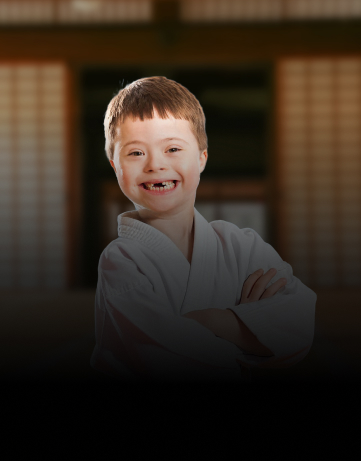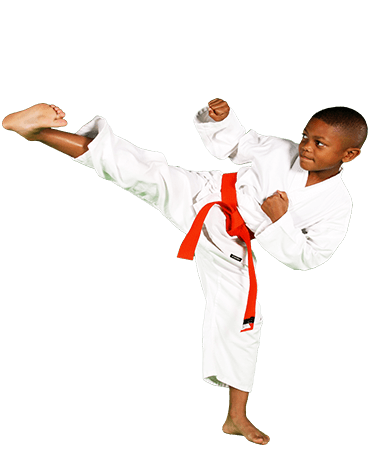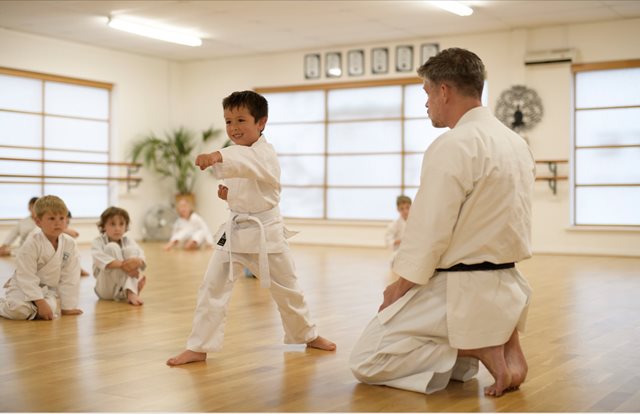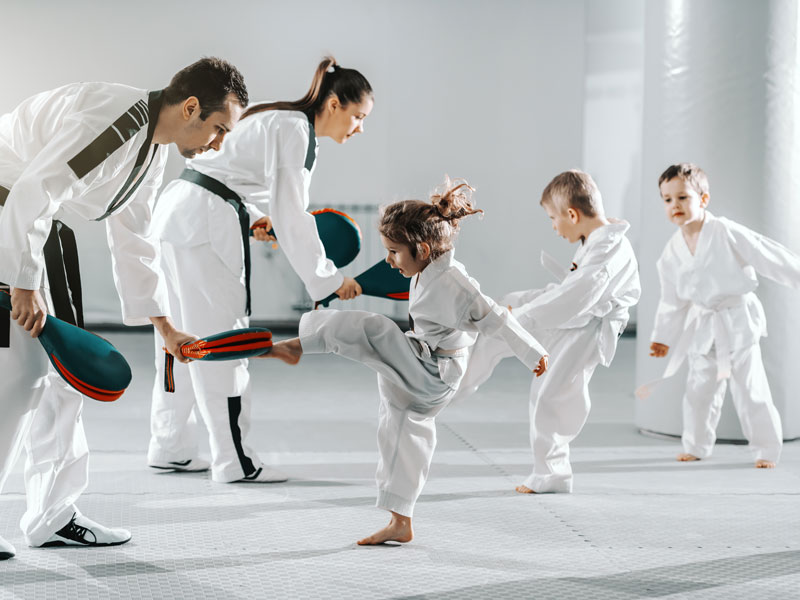How Martial Arts for Children Can Boost Confidence and Technique in Youthful Martial Artists
Karate for kids uses a special opportunity to build self-confidence and self-control in young martial artists. As they find out new techniques and face obstacles, they not just acquire skills yet likewise develop a strong feeling of self-respect. This structured atmosphere encourages them to value the journey of improvement. Exactly how does this training equate into their day-to-day lives? Discover the deeper links that make karate more than simply a sport.
The Significance of Self-confidence in Youth Development
Self-confidence is a vital foundation in youth growth. When you nurture your youngster's self-confidence, you encourage them to face difficulties, take threats, and share themselves easily. Children with confidence are a lot more going to check out social scenarios and new tasks, which can bring about long lasting relationships and important experiences.Encouraging your youngster to step out of their convenience zone promotes strength. They discover that failure isn't the end however instead a stepping stone to success. By celebrating their success, regardless of how little, you aid them identify their abilities and worth.In this journey, assistance and positive reinforcement from you play an essential role. Whether it's through praise or simply existing, your participation enhances their self-confidence. As they grow, this confidence comes to be a long-lasting asset, outfitting them to navigate both difficulties and chances with a solid sense of self.
Exactly How Karate Instructs Self-control and Focus
Karate helps you develop technique and emphasis with its structured training regimen. As you practice mindfulness throughout each session, you'll find out to focus far better both on and off the floor covering. And also, setting and accomplishing goals in martial arts enhances your capability to stay dedicated and mindful.
Structured Training Routine
While you take part in karate training, you'll promptly find how a structured routine imparts self-control and emphasis in young experts. Each course complies with a particular format, including workouts, method practice, and sparring. This uniformity instructs you to commit and respect the procedure to renovation. As you find out methods and forms, you create a sense of responsibility for your very own progress.The organized environment urges you to establish goals, whether grasping a new belt or improving a kata. You'll discover that remaining focused throughout courses and drills sharpens your focus. The discipline you grow in martial arts prolongs past the dojo, positively affecting your schoolwork and day-to-day routines. Each session strengthens the significance of devotion, helping you grow right into a more self-displined individual.
Mindfulness in Technique
As you practice karate, you'll locate that mindfulness becomes a vital part of your training. Each relocation needs your full interest, helping you stay concentrated on the here and now minute. You'll learn to disregard disturbances and concentrate on your breathing, motions, and intentions. This increased recognition sharpens your reflexes and enhances your discipline.During sparring or types, you'll uncover the importance of being psychologically present - Karate Salisbury MD. You'll observe just how this emphasis not just improves your technique however likewise develops your self-confidence. By exercising mindfulness in martial arts, you cultivate persistence and durability, important characteristics that prolong beyond the dojo. By doing this, martial arts educates you to harness your mind, aiding you create a self-displined strategy to obstacles both on and off the floor covering

Objective Setting Techniques
Setting objectives in karate isn't almost earning belts; it's an effective method to cultivate technique and emphasis. When you establish details, possible targets, you produce a roadmap for your progression. For circumstances, instead of simply aiming to enhance your kicks, try concentrating on grasping a particular strategy monthly. This approach maintains you inspired and engaged.Breaking down bigger goals right into smaller, manageable actions aids you track your development and commemorate tiny victories in the process. Whether it's developing your position or increasing your sparring endurance, every goal strengthens your dedication. As you attain these goals, you'll build confidence in your skills and develop a strong sense of self-control that prolongs beyond the dojo into daily life.
Structure Durability Via Martial Arts
Fighting style, specifically karate, offers kids a distinct chance to build durability in a helpful atmosphere. In courses, they deal with difficulties that press their restrictions, whether it's competing or understanding a brand-new strategy with a companion. Each setback, like a missed kick or a lost match, becomes a chance to learn and grow.As they practice, kids learn to embrace pain and maintain attempting, even when points obtain challenging. They find that failure isn't the end; it belongs to the journey. This way of thinking assists them recuperate more powerful, not just in the dojo, but in day-to-day life.With each difficulty they conquer, your youngster constructs confidence in their ability to take on challenges, fueling their resolution. With karate, they'll recognize that durability isn't nearly physical stamina; it has to do with mental grit and willpower, encouraging them to encounter whatever life throws their way.
The Duty of Regard in Martial Arts Training
Regard is a foundational concept in karate training, fostering a society of self-control and camaraderie amongst trainees. When you step onto the dojo floor, you're not just finding out methods; you're check here additionally finding out to appreciate your instructors, peers, and the art itself (Karate Salisbury MD). Bowing at the start and end of class isn't simply a rule; it signifies your acknowledgment of others' dedication.as and initiatives you establish common regard, you'll discover it improves your knowing experience. You'll listen much more diligently to your teacher and gain understandings from fellow students. This setting urges useful objection and support, permitting everybody to expand together.Moreover, respect grows self-discipline. Recognizing the worth of effort and humility aids you remain concentrated on your training. Consequently, this regard converts right into your everyday life, improving your interactions and connections outside the dojo. With karate, you discover that regard is important for personal growth and neighborhood building
Setting Goals and Accomplishing Success in Martial arts

Social Skills and Synergy in the Dojo
While training in the dojo, kids normally establish important social skills and team effort capabilities. As they exercise together with peers, they find out to communicate successfully, share space, and assistance each other. Each course offers opportunities for partnership, whether it's throughout partner drills or team exercises. This synergy cultivates relationships and produces a feeling of belonging, making the dojo a nurturing environment.Kids also gain beneficial dispute resolution abilities. When they encounter challenges, such as differences throughout sparring, they discover to navigate these circumstances constructively. They practice patience and compassion, understanding that every person has various toughness and weaknesses.Moreover, taking part in team tasks grows a sense of responsibility. You'll see your child learning to rely on colleagues and take responsibility for their duty in a team. These experiences not just enhance their martial arts trip however likewise furnish them with social devices they'll lug into various other locations of life.

The Long-Term Perks of Karate Beyond Youth
As children mature and shift right into the adult years, the benefits of martial arts extend far past the dojo. You'll locate that the discipline and focus discovered with martial arts can translate into your academic and expert life. Setting and achieving goals in fighting styles cultivates a solid job ethic, which can push you to master any type of endeavor.Moreover, the confidence got from competing and understanding strategies can boost your self-esteem, helping you tackle difficulties head-on. This durability ends up being vital as you encounter the unpredictabilities of adulthood.Additionally, the social abilities established with team effort and friendship in the dojo can cause much better connections in both individual and professional rounds. You'll discover to interact successfully, resolve conflicts, and build an encouraging network.Ultimately, karate forms not just competent martial artists, but well-rounded people all set to tackle the world.
Frequently Asked Questions
What Age Is Best to Start Martial Arts for Children?
You can start karate as very early as age 4 or 5, yet it often depends upon your kid's maturation and rate of interest. Locating a course that suits their age and power degree makes a large distinction.
Are There Any Kind Of Health And Wellness Advantages From Practicing Martial Arts?
Yes, practicing karate offers countless wellness advantages. You'll enhance your strength, control, and versatility while boosting cardio physical fitness. And also, it enhances emphasis and mental health, making it an amazing choice for total physical and mental wellness.
How Usually Should Kids Participate In Karate Courses?
You should motivate your kids to go to karate courses at least 2 to 3 times a week. Uniformity helps them discover techniques properly and create skills, making their experience much more pleasurable and gratifying in the future.
Can Karate Aid With Managing Stress And Anxiety in Kid?
Yes, martial arts can assist take care of anxiousness in youngsters. It teaches focus and self-control while offering a safe outlet for energy. You'll notice your child growing more confident and calm as they exercise routinely.
What Equipment Is Required for Children Starting Karate?

Comments on “Martial Arts for Kids – A Positive, Encouraging Environment for Your Child’s Development”